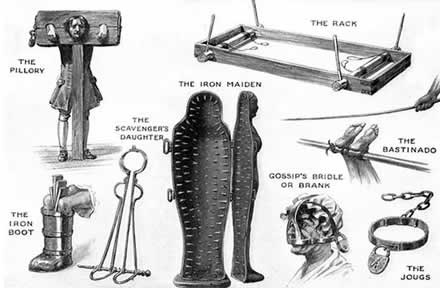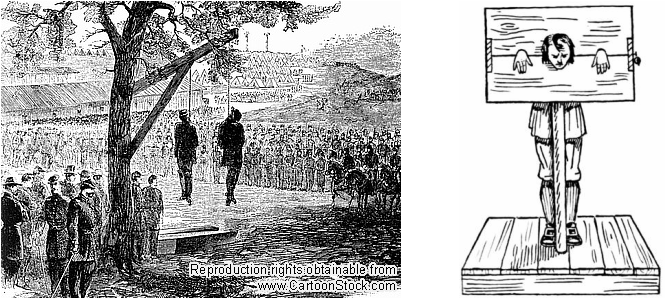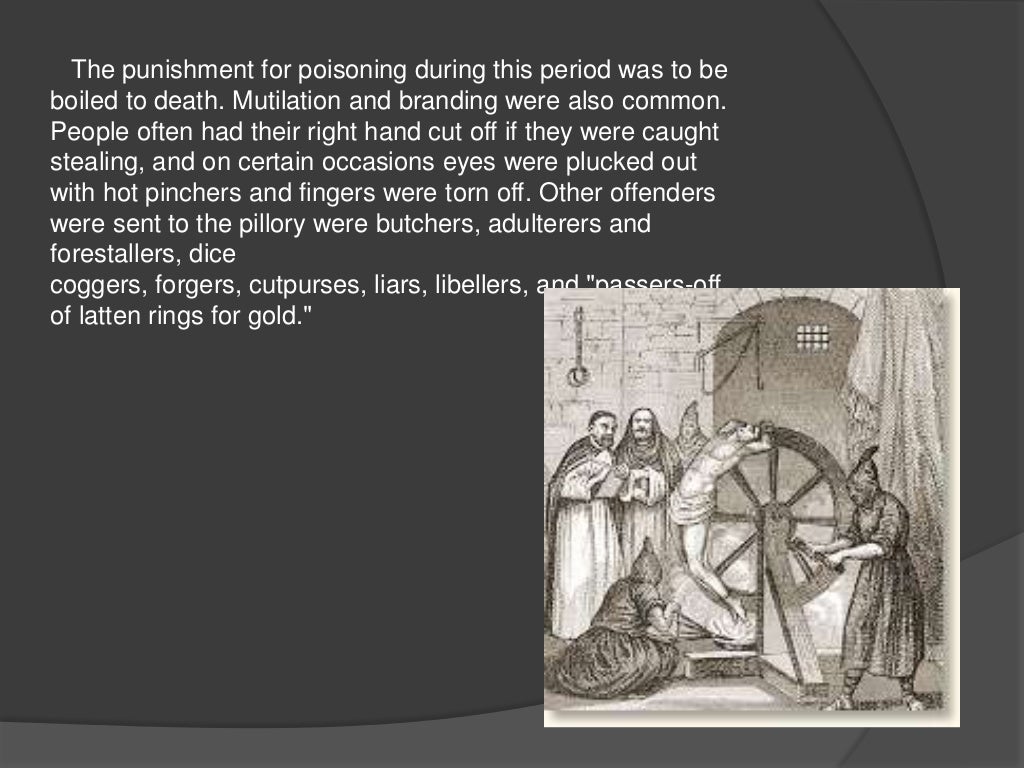Elizabethan era punishments

Boiling in oil water or lead usually reserved for poisoners Starvation in a public place Cutting off various items of the anatomy - hands, ears etc The Gossip's Bridle or the Brank The Drunkards Cloak The most common crimes were theft, cut purses, begging, poaching, adultery, debtors, forgers, fraud and dice coggers. Theft for stealing anything over 5 pence resulted in hanging.
You May Also Find These Documents Helpful
Taking birds eggs was also deemed to be a crime and could result in the death sentence. Punishment for poaching crimes differed according to when the crime was committed - Pmi code of ethics and professional conduct at night resulted in the punishment of death, whereas poaching during the day time did not. Many crimes during the Elizabethan era were due to a crime committed and the law broken due to the desperate acts of the poor. Every town parish was responsible for the poor and unemployed within that parish. The Justice of the Peace for each town parish was allowed to collect a tax from those who owned land in the town.

This was called the Poor Rate which was used to elizabethan era punishments the poor during the Elizabethan period. The beatings given as punishment were bloody and merciless and those who were caught continually begging could be sent to prison and even hanged as their punishment. Travelling during the Elizabethan era could be dangerous, money was necessary and a license, obtained from the Bailiff in the Guild Hall, was required by anyone who needed to travel around England - it was a crime to travel without a licence.

This law ensured that the spread of disease, especially the plague, was contained as much as possible and that the poor and the homeless did elizabethan era punishments travel from one village to another village - an Elizabethan ploy to lower the crime and punishment levels in England. William Shakespeare would have required a license to travel to adhere to the law of the land and his decision to move to London would have been a serious one and no doubt worried his contrast satire who he left in Stratford upon Avon.
Travel during this period in Elizabethan England era was indeed a dangerous and difficult undertaking.
Crime And Punishment In The Elizabethan Era
Actors who, by necessity, had to travel to earn their living and together with peddlers, pilgrims and soldiers were thought untrustworthy and potential elizabethan era punishments breakers. At the very least they would have been viewed as potential carriers of the Bubonic Plague.
Strangers were treated with suspicion and risked being accused of a crime and suffering the appropriate punishment. Travel in Elizabethan could easily end as being viewed as a crime and punishment was inflicted accordingly.

Anyone who needed to travel to earn their living, such as actors, were treated with suspicion and could be expected to be accused of crimes. An actors standing in Elizabethan England was only slightly higher than a beggar or a thief.
Is Torture Ever Justifiable Essay
When plays started to become more popular rich nobles, or high ranking courtiers of the land, acted as their sponsors. It was soon decreed that licenses should be granted elizabethan era punishments legitimise certain Acting Troupes. This raised the actors status somewhat and lead to fewer accusations of criminal activities. A license also had to be granted elizabethan era punishments Town Councillors when a group of actors came to town. Many actors received punishments for real and sometimes imaginary crimes which included the punishment of branding with red hot irons. For more information we recommend this page www elizabethan era org uk Elizabethan see more - Crime - Torture - Punishment Elizabethan Crime and Punishment.]
Elizabethan era punishments - you
Although this Elizabethan era may be marked by plenty of good things, it was still not perfect. There was a very noticeable problem with the way the law handled crime and punishment. That problem was that the rich aristocracy were treated very differently from the poor in regard to what crimes they committed, why they committed the crimes they did and how they were punished. To begin, during the Elizabethan period, there was a slight difference in the what If it was, how gruesome and inhumane were the punishments? What were even considered crimes during this Era? Were punishments and crimes different among all the different classes? It was the time of the Renaissance when Shakespeare lived. Elizabeth I became the Queen of England six years before Shakespeare's birth. Important dates and details effected the Elizabethans in everyday life.Elizabethan era punishments Video
What was life like for the poor in the towns of Elizabethan England? - History - Elizabethan England elizabethan era punishments![[BKEYWORD-0-3] Elizabethan era punishments](http://fbandelizabethan.weebly.com/uploads/5/1/6/6/51668381/1291104_orig.jpeg)

private nuisance question
2021-07-30
Akinosho
I thank for the information.
Compare And Contrast A Rose For Emily And Miss Brill
2021-07-31
Brazragore
Between us speaking, I recommend to you to look in google.com
misconceptions about homelessness
2021-08-02
Brabar
Ur!!!! We have won :)
free chinese music online
2021-08-03
Vijind
I hope, you will come to the correct decision. Do not despair.

Category
Best Posts
- how democratic is the american constitution?
- purchase college research papers
- discrimination in us judicial system
- what is the prognosis for lupus
- buy argumentative essay online
- The Ghost Of Christmas Movie Analysis
- Pestel Analysis Of Starbucks
- What Causes The Gender Pay Gap
- Slavery And Black Codes
- personal statement writing service
- Critical Analysis of Where Are You Going
- help with personal statement






 976
976